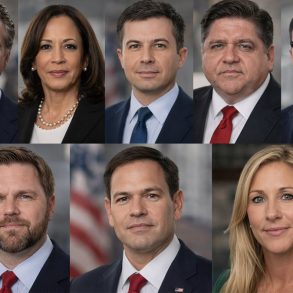A new feature of President Donald Trump’s landmark domestic legislation is drawing sharp debate – not over what it offers today, but what it could lead to tomorrow. At the center of the controversy are the so-called “Trump Accounts,” a government-sponsored savings and investment program created under the One Big Beautiful Bill Act, signed into law on July 4. Treasury Secretary Scott Bessent now suggests the program may serve as a back door to privatizing Social Security – a move some see as a threat and others view as long-overdue reform.
What Are Trump Accounts?
The Trump Accounts provide a $1,000 federal contribution for every American baby born between 2025 and 2028, assuming they have a valid Social Security number. Parents, relatives, and even employers can contribute up to $5,000 per year into these tax-deferred accounts until the child turns 18. The funds can be used for higher education, home buying, or starting a business – and perhaps most significantly, for retirement.
Bessent described the accounts at a Breitbart policy panel in Washington as a tool to promote financial literacy and wealth-building from an early age. He emphasized that the goal is not to replace Social Security outright, but to create a generation of Americans who understand saving, investing, and compound growth.
“If you get a pet, you understand everything about your pet,” Bessent said. “So, if you had these accounts – why are you investing in this way? How are you doing it? How can you understand the power of compound interest?”
A “Back Door” to Privatization?
The comment that sparked political fire came when Bessent said, “In a way, it is a back door for privatizing Social Security.” He explained that Social Security is a defined benefit plan based on wage history. But if Trump Accounts grow to contain hundreds of thousands of dollars, they could act as an alternative stream of retirement income, reshaping the way Americans retire.
This idea mirrors past conservative proposals to allow individuals to invest part of their Social Security contributions in private accounts. The last major effort came in 2005 under President George W. Bush, but fierce opposition killed it quickly. Bessent’s remarks now revive that debate under a different structure.
What the Law Enables
Under the new law, the Trump Accounts are required to invest in low-cost stock mutual funds or ETFs that track U.S. stock indexes. That design allows account holders to benefit from long-term market growth. The accounts are fully voluntary and funded separately from Social Security, but the cumulative effect of widespread adoption could be transformative.
Bessent said the Treasury Department will work with schools and communities to ensure account holders are educated about investing and saving. “We want you to understand it,” he told the audience. “We want you to learn about it.”
Corporate Support Grows
Some major employers are already backing the idea. Charter Communications, a top U.S. broadband provider, announced it would match the government’s $1,000 contribution for employees’ children, effectively doubling the startup capital. Charter praised the program as a way to “unleash the next generation of American success,” and also thanked Sen. Bernie Moreno and President Trump for pushing it forward.
With nearly 20% of Charter’s workforce participating in stock purchase plans and new options to direct bonuses into Trump Accounts, proponents say this is a breakthrough in employer-backed wealth building.
Supporters See Empowerment
Proponents argue that the accounts could empower Americans to retire with more financial independence. They say the accounts teach financial responsibility, increase national savings, and make individuals shareholders in the American economy.
“When you do this, you make everyone a shareholder,” Bessent said. “People who are part of the system do not want to bring down the system.”
He also posted on X to clarify, “Trump Baby Accounts are an additive benefit for future generations, which will supplement the sanctity of Social Security’s guaranteed payments.”
Critics See a Hidden Agenda
Democrats quickly seized on Bessent’s comments as confirmation of long-held fears.
“Donald Trump’s Treasury Secretary Scott Bessent just said the quiet part out loud,” said DNC adviser Tim Hogan. “Trump is now coming after American seniors with a ‘backdoor’ scam to take away the benefits they earned.”
Massachusetts Rep. Richard Neal went further, accusing Republicans of working to enrich Wall Street. “Republicans’ ultimate goal is to privatize Social Security, and there isn’t a backdoor they won’t try,” he said.
Senator Jeanne Shaheen warned, “They’re already ripping health care away from millions on Medicaid, and now they’ve made it clear that your Social Security is next.”
Others criticized the program’s structure. Some tax experts suggested traditional investment accounts may provide more flexibility than the new government-sponsored version, aside from the initial $1,000 gift.
A Risk Worth Taking?
Despite the backlash, Bessent’s suggestion raises an important question: could privatizing part of Social Security — if done gradually and carefully – be a solution to its financial instability?
The Social Security trust fund is projected to run into serious shortfalls by 2033. With rising retirement costs and fewer workers per retiree, some believe that private investment options are not a threat, but a necessary evolution.
The Trump Accounts won’t replace Social Security today. But in the long run, they may offer a path to supplement or even transform retirement in America. If structured well, with safeguards, education, and voluntary participation, this “back door” could become a way forward.
NP Editor: I’m not qualified to analyze this to say whether it is a good idea or not. But judging from history and my knowledge of human behavior, the only caveat I see is that whatever emerges, it MUST BE MANDATORY. We have shown over and over that when saving for the future is voluntary, it doesn’t happen.








